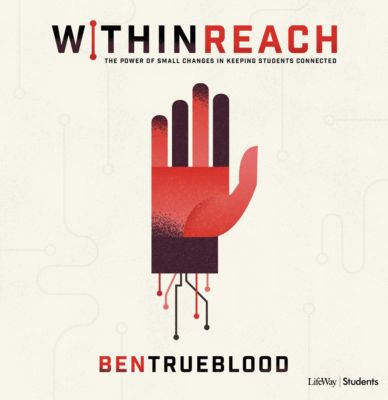
Most students stop attending church after high school, at least for a time. So how can we help students as they transition to a new life stage?
By Chad Higgins
Many years ago, I stepped onto the campus of the University of Oklahoma as a bright-eyed first-year student. Everything around me was new—new friends, a new city to live in, and even a new mini fridge in my dorm room. Life was good.
I remember sitting at my desk as my roommate walked through the door holding a cheap pizza. This scene had played out the same way the previous three evenings as well. I asked why he was eating pizza every night. His answer was simple. “It’s free,” he said. I questioned where he was getting free pizza. He went on to explain that everyone was doing it.
The pizza place across the road from the dorm had a popup tent next to it. A credit card company was offering each student a free pizza for simply applying for a credit card. Droves of teenagers were applying for high-interest credit cards and damaging their credit just for the taste of rubbery pizza. But poor financial choices are not the only decisions college students are making.
Church dropouts

According to a study from Lifeway Research, 2 in 3 (66%) American young adults who attended a Protestant church regularly for at least a year as a teenager say they also dropped out for at least a year between the ages of 18 and 22. Meanwhile, 34% say they continued to attend twice a month or more.
2 in 3 (66%) American young adults who attended a Protestant church regularly for at least a year as a teenager say they also dropped out for at least a year between the ages of 18 and 22. Click To TweetBen Trueblood, director of Lifeway Students, said those numbers speak to the issue at hand. “We are seeing teenagers drop out of the church as they make the transition out of high school and student ministry,” he said. “This moment of transition is often too late for churches to act.”
So, what can we do? How can we help students make a solid choice post-graduation as they move to a new stage of life?
Don’t guess why they left after high school
One of the first things we can do is to not guess at what is happening. You might already have a few assumptions as to why these students are leaving the church after high school. But let’s look at the data.

Virtually all of those who dropped out (96%) listed a change in their life situation as a reason for their dropping out. Fewer say it was related to the church or pastor (73%); religious, ethical, or political beliefs (70%); or the student ministry (63%).
Moving to a new city is difficult for anyone. After high school, many of these students are leaving their parents and best friends behind. Relationships are so important when it comes to connection. As a church leader, you may be sending a few of your high school seniors away to college in a couple of months. Don’t guess what will happen to them. These are general statistics, but you know your specific students. Follow up with them. They still need you in their lives even if they are a state away.
“If you are a pastor or student pastor, stop reading right now and put a reminder in your phone to call graduating students a few months post-graduation.” — Chad Higgins, @StudentMinistry Click To TweetIf you are a pastor or student pastor, stop reading right now and put a reminder in your phone to call these students a few months post-graduation. It will be worth your time. I promise.
Each of these students will have their own stories. Maybe they have to get a job that prevents them from going to church. Maybe they just don’t know what church to attend. They might be struggling with the pressures of college and need to hear from you. Your care is good ministry work.
Use your connections
Many pastors have connections to other ministers outside of their own towns. You may have a connection with a local church in the communities these universities sit in. And if you don’t, it’s something worth exploring for yourself. But we must work together. Being able to point the students leaving your ministry to another minister you know and trust could be life-changing for that student.
Student pastors can schedule a campus visit during the summer to the big universities many of their students are heading to. The chance to spend one last weekend with these students and personally introduce them to a friend of yours can really help these students get connected. It gives your students a leg up when it comes to getting connected and knowing a face when they finally get to campus.
“Being able to point the students leaving your ministry to another minister you know and trust could be life-changing for that student.” — Chad Higgins, @StudentMinistry Click To TweetTalk about the importance now
My college roommate did not consider the importance good credit would have for him later in life. The smell of mediocre pizza got to him. Similarly, many of these teenagers may not completely understand the importance of the local church. Those who stay plugged in are the ones who seem to grasp its importance.
Those who stayed saw the church as an important part of their entire life. When asked why they stayed in church, more than half say the church was a vital part of their relationship with God (56%) and that they wanted the church to help guide their decisions in everyday life (54%).
Around 4 in 10 (43%) say they wanted to follow the example of a parent or other family member. Similar numbers say they continued to attend because church activities were a big part of their life (39%), they felt church was helping them become a better person (39%), or they were committed to the purpose and work of the church (37%).
If we wait until the summer of their senior year to solve this problem, it might be too late. Make sure these students hear the importance of being plugged into the local church even if they move towns.
For permission to republish this article, contact Marissa Postell Sullivan.

Chad Higgins
Chad is the co-founder of Youth Ministry Booster and parent ministry specialist for Lifeway Students.









